Directory
- Share
Hannah Ahamedi
- Alumni
- Canada
- 2023 MPhil African Studies
- Hughes Hall

Hannah Ahamedi
- Alumni
- Canada
- 2023 MPhil African Studies
- Hughes Hall
My experience growing up at the intersection of Swahili and Canadian communities has intrinsically shaped my interests in human rights, disarmament, and diaspora studies. From 2020-2022, I was a research assistant with the Stanford Graduate School of Education supporting the creation of the World Education Reform Database. In addition, during my time at the Reach Alliance, I conducted research examining the importance of employing local grassroots solutions to misinformation in conflict settings. Building on the combination of my degree from the Munk School of Global Affairs and Public Policy at the University of Toronto and my professional experiences with organizations such as Grand Challenges Canada and the Human Rights Tribunal of Ontario, I intend to solidify my academic interest in African women's peacebuilding. In the MPhil in African Studies course, I will utilize comparative policy analyses to examine how disarmament, demobilization and reintegration (DDR) initiatives in Africa have integrated female ex-combatants into their framework. I firmly believe there is a social imperative to DDR work, and a failure to address inadequacies in those structures means a stronger chance of conflict reoccurring.
Previous Education
Middlebury Language Schools Arabic 2023
University of Toronto Social Sciences 2022
Cory Aitchison
- Scholar
- Australia
- 2023 PhD Applied Mathematics and Theoretical Physics
- Clare Hall

Cory Aitchison
- Scholar
- Australia
- 2023 PhD Applied Mathematics and Theoretical Physics
- Clare Hall
I was first exposed to the quantum world during my time in Sydney, Australia, where I completed my BSc in physics and statistics. Combining the fields of quantum error correction with theoretical condensed matter physics, my undergraduate thesis investigated problems such as how to safely store quantum information for longer periods of time. Questions such as these will not only be crucial for the future success of commercial quantum computing, but also help us better understand the quantum world itself. As a research community, we are on the brink of realising controllable, scalable quantum systems for the first time - giving us the unprecedented ability to test and improve upon ideas across quantum theory. I am excited to continue exploring these areas through a PhD in Applied Mathematics and Theoretical Physics at Cambridge, drawing upon ideas from both quantum information and condensed matter physics. As a Gates Cambridge Scholar, I am honoured to join such a diverse and collaborative academic community, through which I aim to continue embracing this interdisciplinary approach to my studies and future research.
Previous Education
University of Sydney Physics and Statistics 2022
Links
Angello Alcazar
- Scholar
- Italy, Peru
- 2023 PhD Spanish and Portuguese
- Hughes Hall

Angello Alcazar
- Scholar
- Italy, Peru
- 2023 PhD Spanish and Portuguese
- Hughes Hall
I was born in the second largest city located in a desert after Cairo, towards the end of a never-ending dictatorship. Growing up in Lima, I soon learned that Peru was a country which amalgamated many conflicting realities that were not easily reconciled. My drive to address some of these issues and think laterally has been the stimulus for my work as a researcher, journalist, editor and academic consultant. From a young age, my reluctance to yield to well-demarcated routes has broadened my perspectives and motivated me to find my own path while collaborating with others to create change. Covering dictatorship novels, autobiographical writing and the role of emotions in fiction, my three theses have contributed to advance knowledge at the intersection of literature and sociology. At Cambridge, my PhD project will explore how a group of South American authors grappled with pain and dissatisfaction in their artistic and extraliterary experiences through the diary form. By so doing, I hope to shed light on the value of a sentimental approach to adversity in life-writing, as well as the configurations of masculinity that emanate from it. I am deeply indebted to the Gates Cambridge Trust for giving me this unparalleled opportunity.
Previous Education
Universitat de Barcelona Advanced Literary Studies 2022
McGill University Sociology and Hispanic Studies 2020
Michael Allison
- Alumni
- New Zealand
- 2023 MPhil Engineering for Sustainable Development
- Wolfson College

Michael Allison
- Alumni
- New Zealand
- 2023 MPhil Engineering for Sustainable Development
- Wolfson College
I grew up on a farm in New Zealand, planting natives, tramping in the mountains, diving in the sea and kayaking on local rivers. These experiences instilled a sense of responsibility for the natural environment and a commitment to sustainability. I have a biology degree and music degree from the University of Auckland. I also studied civil engineering (First Class Honours) and conducted research on water infrastructure in New Zealand and the Pacific. I then worked in the construction industry as a project manager.As a postgraduate student at the University of Cambridge, I researched the complexities of developing resilient infrastructure in the context of environmental and socioeconomic constraints, specifically focusing on steel circularity in the construction sector.Infrastructure is the foundation on which society is built, and sustainable development will play a pivotal role in improving outcomes for humanity and the planet.
Previous Education
University of Auckland Civil and Environmental 2022
University of Auckland Musicology 2021
Millicenta Ampiah
- Scholar
- Ghana
- 2023 PhD Medical Genetics
- Girton College

Millicenta Ampiah
- Scholar
- Ghana
- 2023 PhD Medical Genetics
- Girton College
Growing up in Accra, Ghana, pursuing a career in science especially as a woman was not simple to navigate. My journey has taken me from a BSc in Biochemistry at KNUST, to an MSc in Clinical Embryology at the University of Oxford, with a specialisation in genomics of healthcare. My experiences have also motivated my active involvement in efforts to increase black, ethnic minority and disadvantaged representation across STEM globally. My PhD research at Cambridge focuses on the molecular characterisation of the role of E-box motifs and associated variants on the circadian expression of SCN5A, a gene linked to Inherited Cardiac Arrhythmias (ICAs). ICAs are rare diseases responsible for majority of sudden cardiac deaths in young people and infants. The goal is to establish the mechanistic basis of the role of the circadian clock in ICAs, which will provide novel insights into treatment routes. Ultimately, I want to contribute to firstly developing equitable and accessible solutions to genetic diseases, and secondly incorporating genomic technologies to strengthen the world’s most fragile health systems. Joining the Gates Cambridge Scholars’ community, I look forward to a transformative experience with other young global leaders.
Previous Education
University of Manchester Clinical Bioinformatics 2022
University of Oxford Clinical Embryology 2019
Michael Baker
- Scholar
- United States
- 2023 PhD Clinical Neurosciences
- Trinity Hall
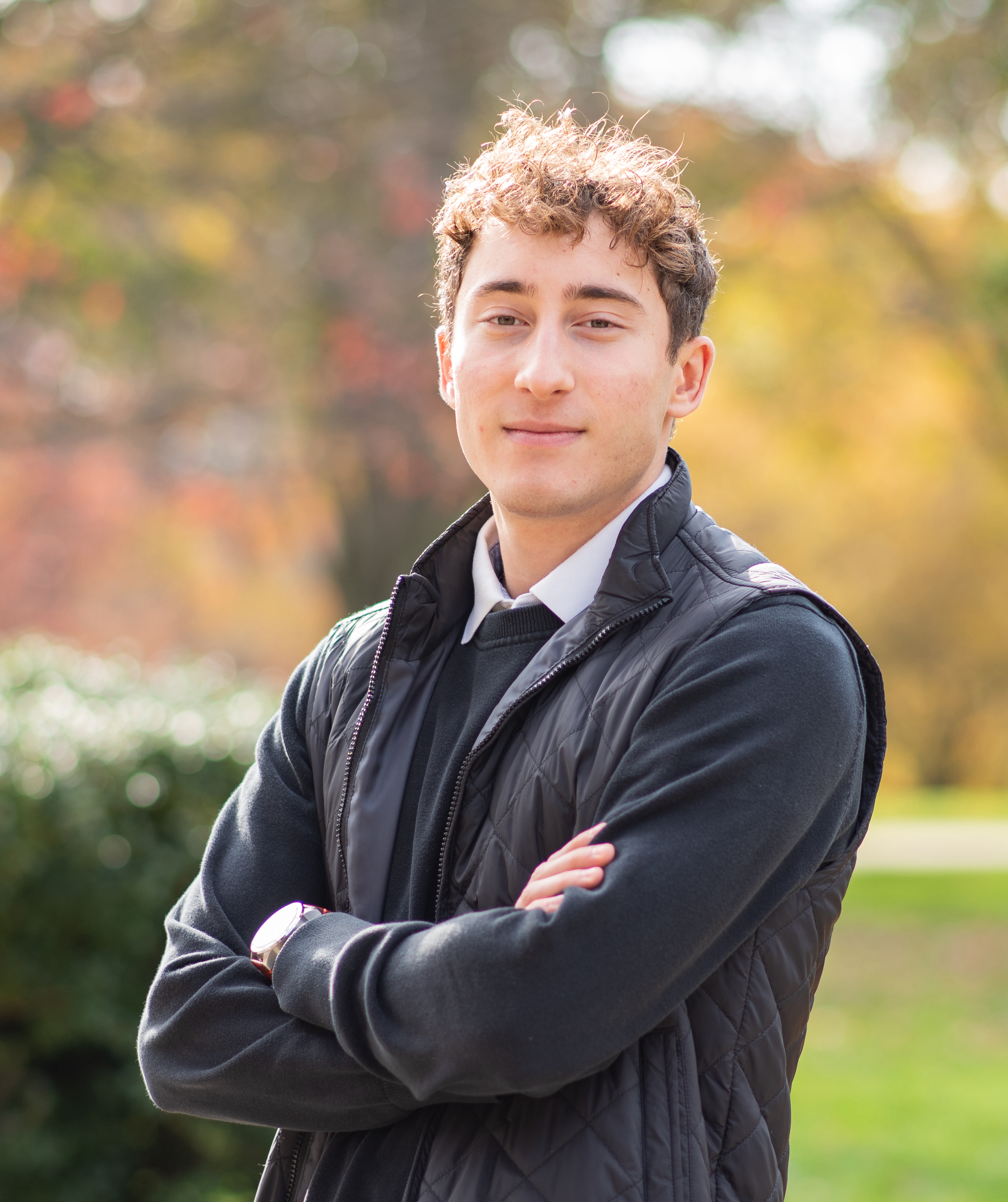
Michael Baker
- Scholar
- United States
- 2023 PhD Clinical Neurosciences
- Trinity Hall
After transferring from Schreyer Honors College at PSU to University of Pittsburgh for a neuroscience degree, I helped investigate biomarkers for psychosis by processing auditory evoked potentials and brain imaging. I later conducted biochemical research on synaptic protein interaction in learning and memory formation. These experiences prepared me for the data driven, neurochemical nature of my MPhil with Mr. Adel Helmy, inspired by observing surgeries and volunteering on hospital floors with patients being treated for nervous system injuries of varying severity; I questioned the impact of neuroinflammation on outcomes. Insight into neurotrauma is urgent because of the expected increase in its global incidence and it being one of the most abrupt causes of significant disability despite preventability and treatability. My aims are to use data from the largest cerebral microdialysis-monitored cohort to elucidate post-TBI correlations between brain metabolites and outcomes to guide intervention preventing inflammation and deterioration and to progress resource-stratified clinical guidelines for neurotrauma in low- and middle-income countries where there is threefold the incidence of TBI and associated mortality.
Briseyda Barrientos Ariza
- Alumni
- United States
- 2023 MPhil European, Latin American, & Comparative Literatures & Cultures
- Trinity College
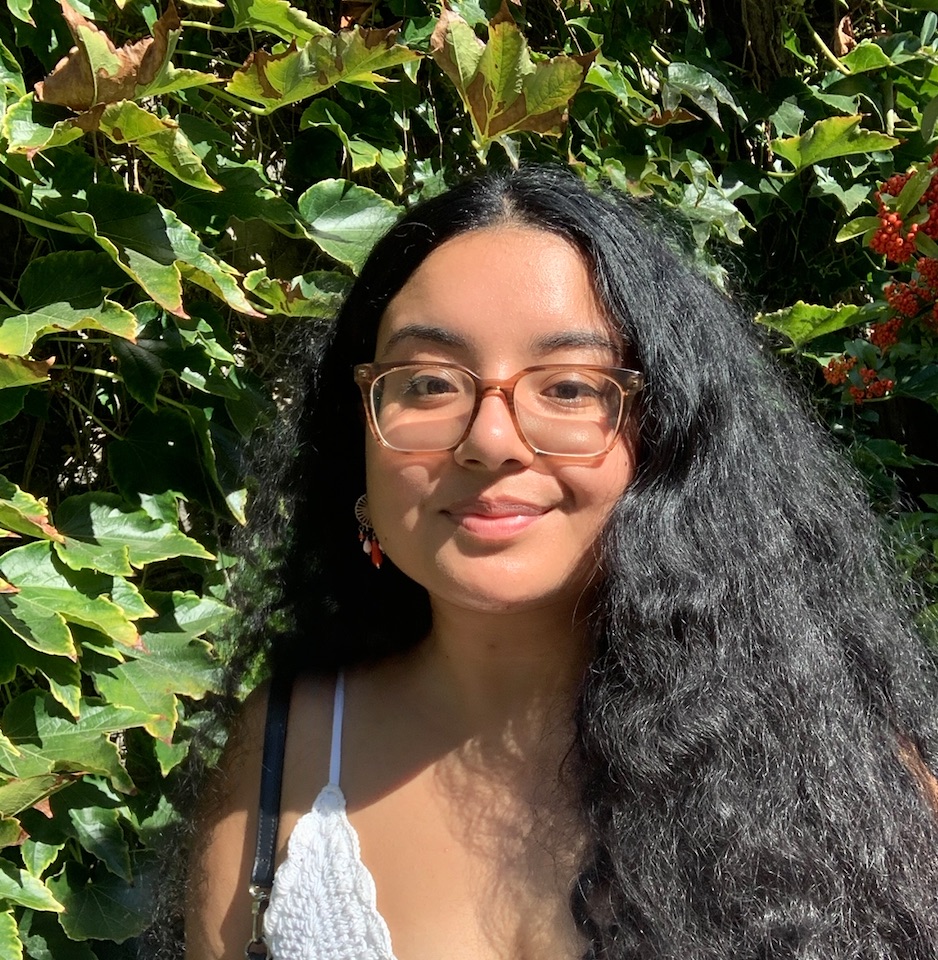
Briseyda Barrientos Ariza
- Alumni
- United States
- 2023 MPhil European, Latin American, & Comparative Literatures & Cultures
- Trinity College
I am from Hyattsville, Maryland and most of my childhood summers were spent in the humid climates of Guatemala––saturated in the culture of storytelling. During my studies at Towson University, I returned to the stories of my girlhood. As a recipient of the Leadership for Public Good Fellowship, I collected the oral histories of Guatemalans on their encounters with regional folkloric figures, amplifying occluded voices via cultural/archival work. I built upon my fieldwork in my thesis, where I examined the function of orature and its products as counterstories and symptoms of colonial trauma. During my MPhil at Cambridge, I will broaden my work to the larger Central American diaspora to exhibit how orature and its practice operate as a collective narratological and rhetorical (method)ology that opposition colonial narratives, allowing for new ones to emerge. By re-reckoning the violence represented in the literary and lived, I seek to reassess how narratives are constructed and taught globally through the language and experiences of the oppressed to highlight the anticolonial possibilities extant in intergenerational stories. I am honored to join the Gates Cambridge community, where we all look forward to building a better world.
Previous Education
Towson University English with Literature Track 2022
Towson University Psychology 2022
Ella Beaudoin
- Scholar
- United States, United Kingdom
- 2023 PhD Archaeology
- St John's College
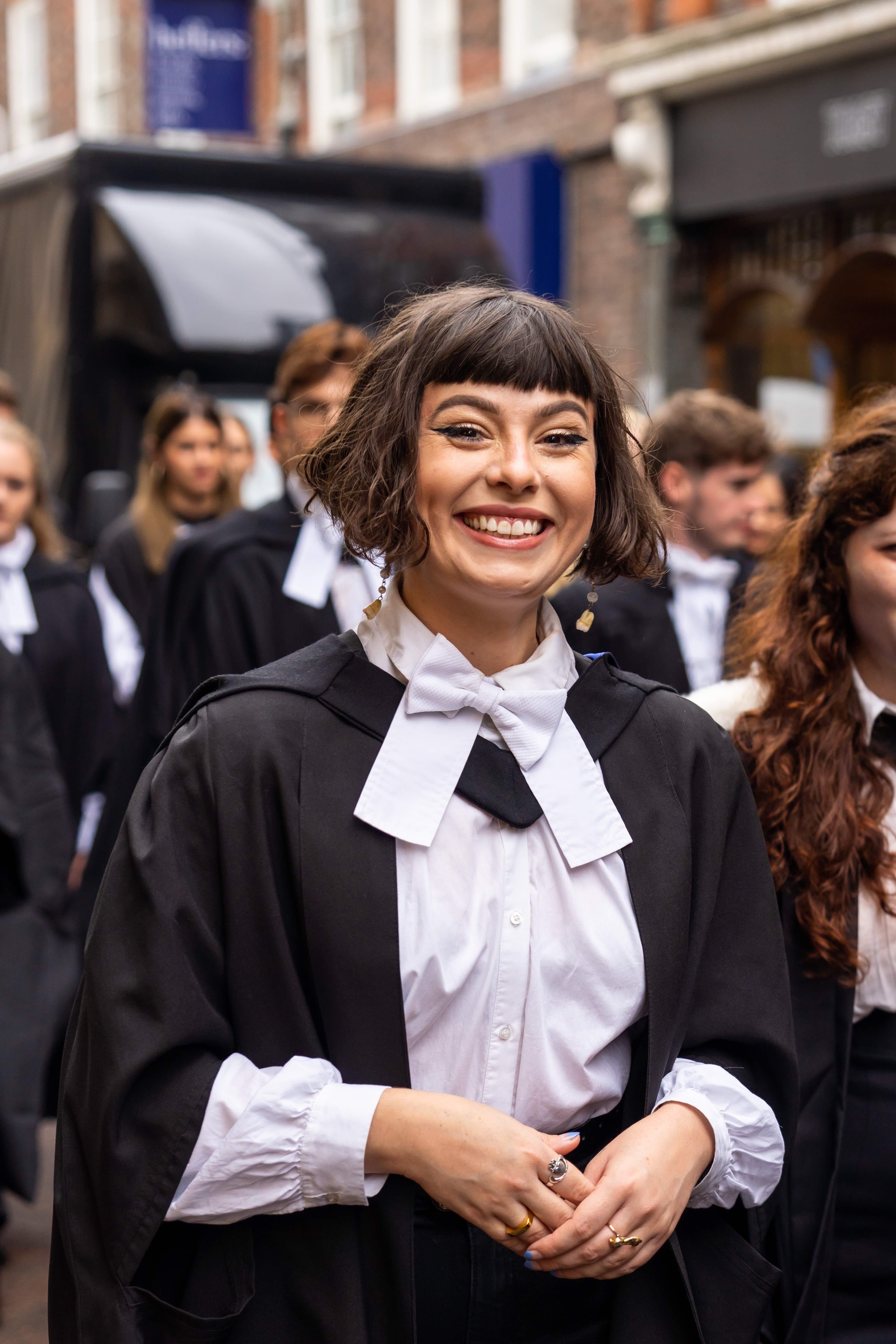
Ella Beaudoin
- Scholar
- United States, United Kingdom
- 2023 PhD Archaeology
- St John's College
I’ve always lost myself in stories, sci-fi narratives, fantasy quests, tales of faraway places. Growing up, I became increasingly fascinated by stories of the past. How objects and traces can be brought together, giving a glimpse into the lives of those who came before. After earning an Anthropology BA from American University, I pursued a career as an educator, researcher, and project manager at the Smithsonian NMNH. My work involved developing content to highlight key concepts within exhibits and fostering understanding around culturally significant topics. Witnessing the power of museums as spaces for reconciliation, education, and care inspired me to undertake an MPhil at Cambridge, where I investigated ethnographic collections that may lack context. My proposed PhD seeks to build deeper connections with 'ordinary' objects in museum collections and establish best practices based on the needs of stakeholding communities worldwide. These everyday items weave us into the tapestry of life, linking people with their ancestors and fostering shared connections across time and cultures. Our past informs our present and future; I hope that by harnessing this potential, we can create a more empathetic and inclusive museum system.
Previous Education
University of Cambridge Archaeological Research 2022
American University Washington Archaeology 2017
Anais-Marie Berkes
- Scholar
- Germany
- 2023 PhD Computer Science
- Jesus College
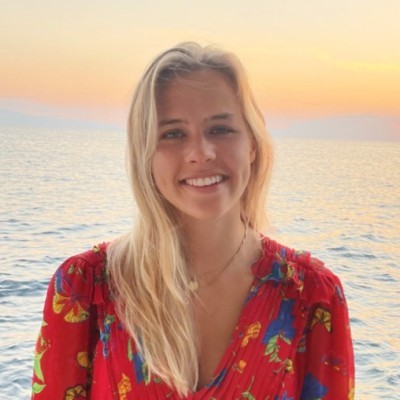
Anais-Marie Berkes
- Scholar
- Germany
- 2023 PhD Computer Science
- Jesus College
“How can AI be used to combat climate change and save the natural world?” I first thought about this as an undergraduate computer science student, conducting research for both ETH Zurich and Cambridge. I studied AI’s role in the transition to clean energy and the adoption of distributed solar production technologies in residential housing.It is my mission to fully leverage the potential applications of AI in the fight against climate change. I will explore how the predictive capabilities, reliability, and multi-variable pattern recognition power of AI can be used to preserve and protect the natural world. My academic focus is informed by my initiatives in sustainable development, notably, employing my ongoing research into the provision of solar energy to schools in Indonesia. As a global ambassador for AI’s potential in environmental protection, I aim to aid economies in their transition into a greener future, actively participate in informing policy-making, and encourage greater cooperation between academia and industry leaders. The possible impacts and applications of my research, and its ability to inspire future generations to fight for a better world, make me incredibly excited to pursue my Ph.D.
Previous Education
Swiss Federal Institute of Technology Computer Science 2023
Parker Blackwell
- Alumni
- United States
- 2023 MPhil Heritage Studies
- King's College
Parker Blackwell
- Alumni
- United States
- 2023 MPhil Heritage Studies
- King's College
Alongside my undergraduate study of archaeology and the ancient Mediterranean world at the George Washington University, I developed an intense interest in the complexities of cultural heritage. Heritage is an immensely powerful tool in creating feelings of belonging. Simultaneously, our heritage can also be used for exclusionary purposes: to justify violence and silence minority voices. Through the MPhil in Heritage Studies at Cambridge, I intend to further my understanding of how tangible and intangible heritage shapes identity, memory, and culture in the present. Namely, I will continue research into the root causes of continued looting, theft, and destruction of cultural heritage in West Africa. My ongoing work will foreground local voices to inform meaningful heritage management in the region.
Previous Education
George Washington University Archaeology; Classical Studies 2023
Jonathan Bleasel
- Scholar
- Australia
- 2023 PhD Medicine
- Darwin College
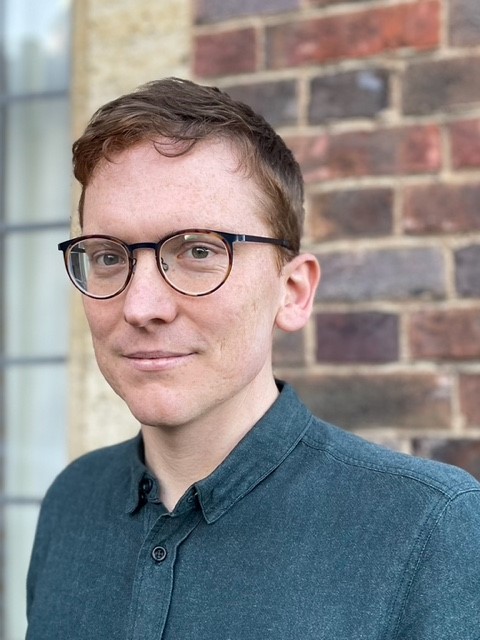
Jonathan Bleasel
- Scholar
- Australia
- 2023 PhD Medicine
- Darwin College
Throughout my medical education in Australia, I have been fascinated by the promise of personalised medicine, of moving beyond generic treatment protocols to individualised decision making. Such an approach will make healthcare more effective and improve equity of outcomes across our community. During my specialty training in nephrology, I have had the rewarding experience of providing care to many individuals undergoing kidney transplantation. While this procedure can be life-changing, there is a pressing need for better strategies to individualise transplant immunosuppression to improve long-term outcomes. In my PhD project we will utilise next generation sequencing to study patterns of gene expression in circulating immune cells before and after kidney transplantation and correlate this data with relevant clinical events. This research will improve our understanding of the genetic and molecular basis of variable outcomes in kidney transplant recipients. I am grateful and honoured to be contributing to this field as a member of the Gates Cambridge community.
Previous Education
University of Sydney Public Health 2019
University of New South Wales Medicine 2014
Kayli Bolton
- Alumni
- United States
- 2023 MPhil Medical Science (Oncology)
- Churchill College
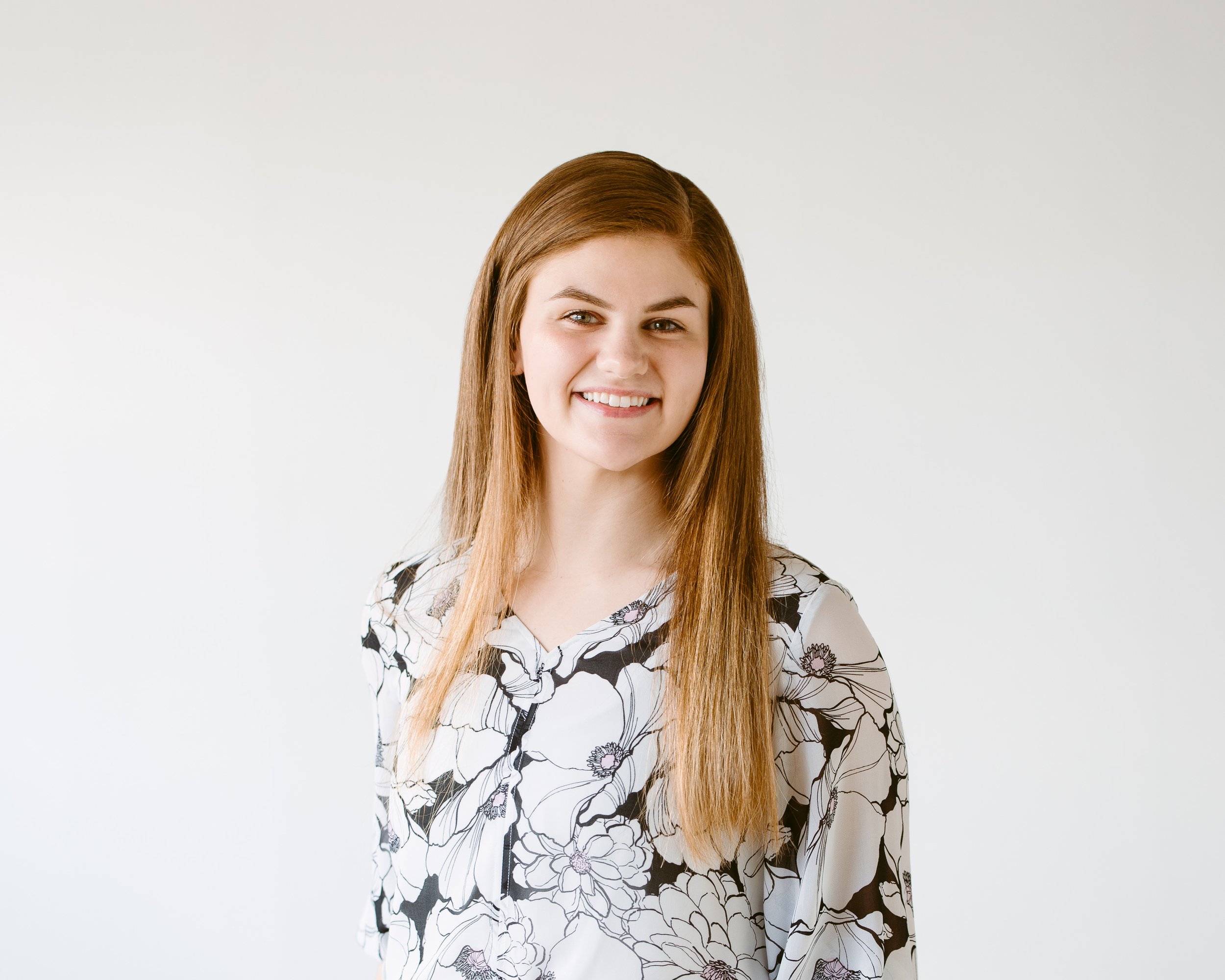
Kayli Bolton
- Alumni
- United States
- 2023 MPhil Medical Science (Oncology)
- Churchill College
I grew up in Corbin, Kentucky and attended the University of Kentucky as a biology major and Lewis Honors College member. The impact of cancer on my family and community, which faces the highest incidence and mortality of cancer in the United States, inspired me to seek a career as a physician scientist dedicated to improving cancer care. Throughout my undergraduate career, I conducted research investigating the role of glycogen and glycogen metabolism in glioblastoma and Ewing’s Sarcoma and was awarded the Barry Goldwater Scholarship and Astronaut Scholarship for this work. I was selected for MD Anderson’s CPRIT-CURE program where I explored ways to enhance radiotherapy of patients with head and neck cancers by utilizing imaging and bioinformatics. I am elated to pursue a MPhil in Medical Science in the department of Oncology at Cambridge. My project is centered on the hypothesis that competition between oesophageal adenocarcinoma and its precursor lesion, Barrett’s oesophagus, may determine the sensitivity to treatment and affect prognosis. It is a privilege and honor to be selected for the Gates Cambridge Scholarship and work alongside a cohort of inspiring individuals.
Previous Education
University of Kentucky Biology 2023
Kristen Burgess
- Scholar
- South Africa
- 2023 PhD Chemistry
- St Catharine's College
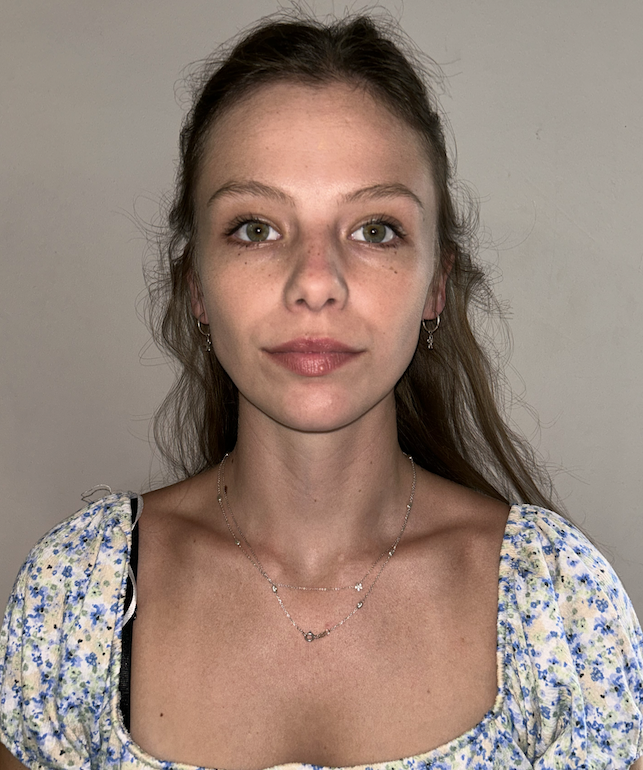
Kristen Burgess
- Scholar
- South Africa
- 2023 PhD Chemistry
- St Catharine's College
I have always been interested in the underlying mechanisms of disease, particularly cancer. After my undergraduate degree at Rhodes University, a small university in a small town in South Africa, I needed to decide between chemistry and biochemistry for my postgraduate endeavours; even though I love biochemistry, I opted for chemistry, as it allowed me to explore diseases (and other topics) with a molecular approach and left a few more doors open. Over the course of my undergraduate degree and postgraduate research, this interest has been ignited and has ultimately developed into an insatiable hunger to understand more. I will now be doing my PhD with a broader focus encompassing both chemistry and biochemistry. This project will investigate the effect that Glioblastoma Multiforme (malignant brain tumours) has on the surrounding extracellular matrix within brain tissue, in order to enhance its progression and invasion. Once the mechanism of the disease has been mapped out, an intelligent molecular intervention can be designed. I am just delighted about what this opportunity has to offer me in my quest for knowledge, filling the research gap, sharing my love for science and combatting this devastating disease.
Previous Education
Rhodes University Chemistry 2023
Rhodes University Chemistry 2022
Rhodes University Chemistry and Biochemistry 2021
Zhiyu Chen
- Scholar
- China
- 2023 PhD History and Philosophy of Science
- Newnham College
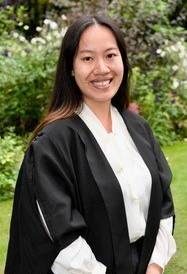
Zhiyu Chen
- Scholar
- China
- 2023 PhD History and Philosophy of Science
- Newnham College
I’m a PhD student in History and Philosophy of Science and a Gates Cambridge Scholar, exploring how knowledge was produced and circulated across cultures. My interests span two intersecting areas: the print and material culture of early modern sciences, and knowledge exchanges between China and Europe, with particular attention to Southeast Asia and the history of Sinology. I love bringing people together around historical objects, keeping projects running smoothly, and making sure that ideas have tangible impact beyond the academy. Alongside research, I've worked closely with collections, taught undergraduates, translated between Chinese and English, volunteered with museums and archives, organised reading groups, and helped run events and conferences. I expect to complete my PhD within the next two years and I'm exploring next steps that combine research, organisation, and communication. I'm particularly excited about opportunities in scientific and cultural collections, the public sector, and research policy and administration.
Previous Education
University of Cambridge Hist. & Phil. of Sci. & Med. 2023
University of Cambridge Natural Sciences 2022
Links
Jannathul Chowdhury
- Alumni
- United States
- 2023 MPhil Education (KPP)
- Homerton College
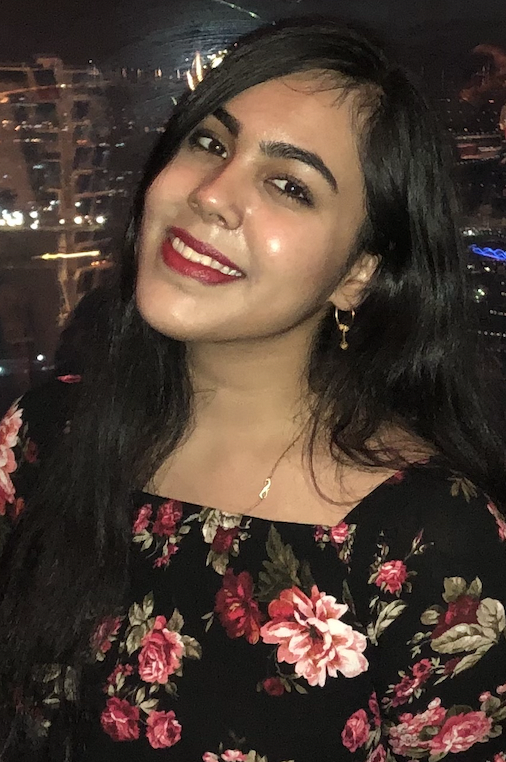
Jannathul Chowdhury
- Alumni
- United States
- 2023 MPhil Education (KPP)
- Homerton College
I am a Bangladeshi American and first-generation college student who was born and raised in New York City. Growing up as a child of immigrants in one of the world’s largest public school systems, I witnessed first-hand the disparities that existed for students with immigrant backgrounds in the public educational system. South Asian immigrants, like myself, often come from a culture where disability education and female education is stigmatized, and this creates further barriers for first-gen students in the educational system. Knowing this, I knew I wanted to make a difference in the field of education. For the last four years, I have been teaching K-12 and helping thousands of first generation students with college matriculation. I am proud to say this May, I will be graduating with a teaching certification and undergraduate dual degree in adolescent education & history from CUNY Hunter College. At the University of Cambridge, I will be receiving my MPhil in Education from the Knowledge, Power and Politics program in order to research the ways that inclusive curricula that work for multicultural students. I am honored to be among the brilliant network of Gates Scholars, who will mobilize me in my pursuit for educational equity.
Previous Education
Hunter College Adolescent Education & History 2023
Mathijs Clement
- Scholar
- Belgium
- 2023 PhD Classics
- King's College

Mathijs Clement
- Scholar
- Belgium
- 2023 PhD Classics
- King's College
Out of a wide range of interests, I always return to Classical Studies as a unique mirror for better understanding today’s world. After obtaining a bachelor’s and a master’s degree in Latin and Greek at Ghent University, Belgium, the Flemish Government granted me funding (a ‘Fayat’ scholarship) to pursue an MPhil in Classics at Cambridge. I am intrigued by late antiquity – a period of lasting religious, political and sociocultural change. In my PhD, I aim to study two late antique authors, a church leader (Gregory of Nazianzus) and a professor of rhetoric (Ausonius of Bordeaux). With the generous help of Gates Cambridge, I hope to understand how these authors presented themselves in relation to the different places where they lived. Studying place, self-presentation, and migration in late antiquity will hopefully help to nuance our understanding of identity, not only in the past but also today.
Previous Education
University of Cambridge Classics 2023
Universiteit Gent (University of Ghent) Linguistics and Literature 2022
Universiteit Gent (University of Ghent) Latin - Greek 2021
Willow Dalehite
- Scholar
- United States
- 2023 PhD Zoology
- Trinity College
Willow Dalehite
- Scholar
- United States
- 2023 PhD Zoology
- Trinity College
Cooperation is important for the evolution of many species, allowing them to persist in otherwise hostile environmental conditions. As an undergraduate at Princeton, I cultivated an interest in the evolution of cooperative behavior through my research on three avian species. During my PhD in Zoology as a Gates Cambridge Scholar, I hope to uncover the impacts of cooperation on biodiversity using burying beetles as a model study system. Not only do burying beetles provide essential ecosystem services such as returning bioavailable nutrients to the soil, but they can also help us understand how social behavior might influence biodiversity on a genetic and phenotypic scale. By studying wild beetle populations in Cambridge, I also hope to learn about drivers of local adaptation in a fragmented habitat, which can inform us about factors that allow species to adapt to human-induced environmental change. I believe that the biodiversity crisis is one of the most important challenges facing humanity today; my work will contribute to meaningful solutions to preserve the well-being of humans and the ecosystems in which we live. I am honored to be joining a community of scholars committed to improving the lives of beings around the world.
Previous Education
Princeton University Ecology & Evolutionary Biology 2022
Eckart De Bie
- Scholar
- Netherlands
- 2023 PhD Medicine
- Clare College
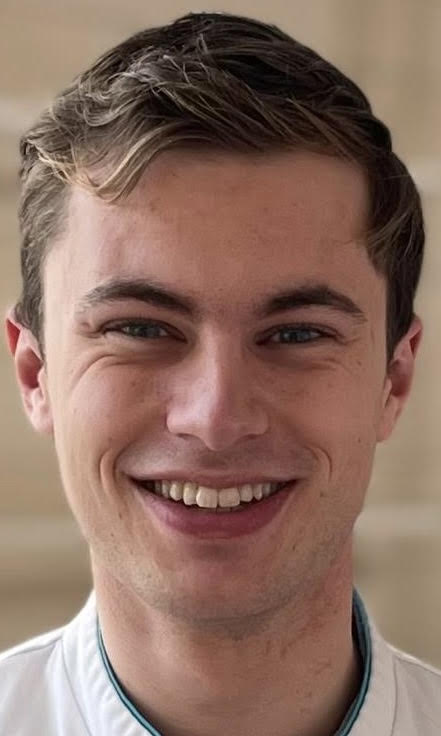
Eckart De Bie
- Scholar
- Netherlands
- 2023 PhD Medicine
- Clare College
I studied medicine at Radboud University (the Netherlands). During my studies I realised that, whilst working in medicine is both extremely rewarding and challenging, there are many patients for whom curative treatments are not available. This sparked my interest in translational research; I want to make a contribution to get science from the ‘bench to the bedside’ to improve the outcomes for patients. Therefore, I intermitted my medical degree to undertake an MPhil at the University of Cambridge, supervised by Dr Mark Toshner and Dr Chris Wallace. We investigated the link between autoimmunity and Pulmonary Arterial Hypertension (PAH); a rare but deadly cardiovascular disease. We found that a significant subset of PAH patients had a clear autoimmune signature. I was keen to further investigate this, which led me to apply for a PhD after completing my medical degree. In my PhD, I aim to identify the mechanisms mediating the link between autoimmunity and PAH as well as biomarkers associated with autoimmunity in PAH. In the future, this may result in personalised treatment and better outcomes for PAH patients. I am delighted to become a part of the community of Gates Cambridge Scholars and look forward to start in Cambridge!
Previous Education
Radboud University Nijmegen Medicine 2023
University of Cambridge Translational Biomedical Research 2020
Radboud University Nijmegen Medicine 2019








